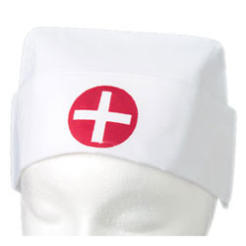Breast Cancer Care, Touchstone and Lifeblood: The Thrombosis Charity have made the shortlist for the healthcare and medical research category of the Charity Awards 2010.
Breast Cancer Care
Bringing people affected by breast cancer together
One of Breast Cancer Care’s key goals is to place the people affected by breast cancer, their family and friends at the heart of decision-making. But until 2007, user involvement was ad hoc, inconsistent and unmeasurable.
Three years ago the charity decided to formalise its user involvement process in order to increase user input, measure the impact of involving users in its work and ensure that services and policies are designed, delivered and evaluated based on actual rather than presumed needs.
By the end of year one, user involvement was included in all staf inductions and a new intranet section was created to include interviews with staff and users on their experiences of user involvement as well as methods and tools for staff. Staff were trained on how to build user involvement into their budgets.
The now-640-strong Breast Cancer Voices user involvement group are a mix of Breast Cancer Care service users and non-service users recruited through an outreach programme. According to the National Centre for Involvement, normal user involvement levels are 10 per cent, yet Breast Cancer Voices has a monthly average of user involvement of 65 per cent. It also has a very high
retention rate – only ten people have dropped out.
In 2008/09 nearly two-thirds of Breast Cancer Voices contributed to a Breast Cancer Care project every month – “one of the highest levels of volunteer activity anywhere in the charity world”, according to user involvement manager Vicky Lane.
Touchstone
Delivering mental health services to those from deprived neighbourhoods
Touchstone provides emotional support and practical advice to those with mental health problems, mainly from deprived neighbourhoods. But five years ago, beneficiaries had little say in what happened at the Leedsbased charity. There was one token mental health service user on the trustee board and the charity admits that “service user involvement
fulfilled the needs of staff and funders, not the participants
themselves. We were not accountable to those we supported.”
The charity knew it needed a framework and action plan, so it gathered together a group of service users and carers and asked them how they would like to get more involved in Touchstone. This evolved into a Service User and Carer Involvement Strategy and Action Plan, drawn up in 2005 and agreed by the board in January 2006.
In 2008 the Touchstone Service User Evaluation Group was
established, which evaluates services from a customer perspective. Now with more than 1,000 users, the cross-organisational scheme gives those affected the chance to help run the charity, through opportunities such as sitting on the compliments and complaints audit panel. The strategy has attracted praise from the charity’s two main funders, Leeds PCT and Leeds City Council Adult Social Care department.
Their December 2009 report concluded: “The review team wer struck by the quality of service user involvement that appears to run throughout the organisation… This approach was highlighted by many service users and stakeholders as being one of the key successes of this organisation.”
Lifeblood: The Thrombosis Charity
Preventing deaths from venous thromboembolism
Lifeblood was formed in 2002 in recognition of the scale of the condition venous thromboembolism (VTE) and has been campaigning ever since for the Department of Health to prioritise VTE prevention and to drive this prevention through compulsory risk assessment on admission. The charity is recognised after its lobbying helped ensure the DoH agreed to put VTE risk assessment at the top of its agenda in the 2010 NHS Operating Framework.
A key milestone came in 2005 when a Health Select Committee, precipitated by Lifeblood, took oral and written evidence from the charity and indentified that each year 25,000 people die from VTE contracted in hospital. This is more than the combined total of deaths from breast cancer, Aids and traffic accidents, all the more alarming when most of the deaths are preventable using simple and cost-effective methods.
The challenge was to raise the profile of a relatively technical medical issue with NHS leaders, politicians and the general public. Tactics included submitting Freedom of Information requests, hosting national VTE events, making political representations and producing parliamentary briefings with the all-party parliamentary thrombosis group. The programme was managed and implemented with
Insight Public Affairs, an agency which was paid for by pharmaceutical company sanofi-aventis. As a result the campaign was undertaken with a budget of less than £180,000 and with costs not exceeding £10,000.









